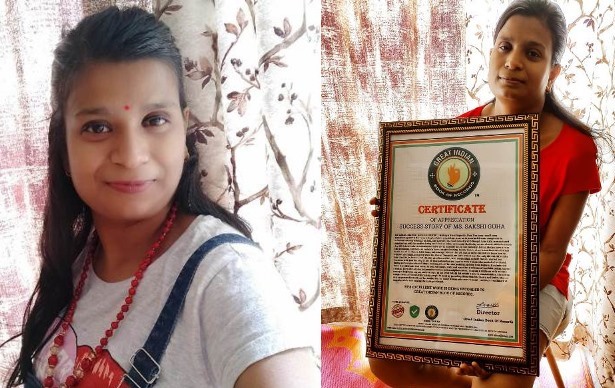Sakshi Guha, 34, founder and owner of Bengali Love Café, Gurgaon, who has been nominated as a ‘Covid-19 Soldier’ shares her story and her objectives
Mine is a Slumdog millionaire story: A girl who came out of a humble household, founded a food-tech startup amid pandemic, with zero financial support from anyone, and made a fortune big enough to support many other unlettered women. Today, Bengali Love Café, my one-year-old venture, distributes free meals to the less privileged, gives out educational kits to poor students, holds tree plantation campaigns and trains women in business skills.
I came to Gurgaon from Muzaffarnagar, a small town, for work and better opportunities. When I lost my job during raging Covid-19, I decided to start my own business set up. I noticed during those tough times that even well-to-do families were hard put in arranging meals; restaurants had shut shop, housemaids had left to their native places, and the disease caused fatigue.
Hence I along with my mother, Deepa Guha, started a tiffin service by distributing leaflets in and around our locality in the hope of getting customers for our service. It was a bona fide startup. We took money from those who could afford and provided free meals to those who could not.
There were all types of meals, of course it included traditional Bengali food, and several interesting options different from the regular fare. The food was freshly cooked, and delivered to the doorsteps of our patrons.
To save costs, we grew fresh and chemical-free vegetables at our own kitchen garden. All spices used for cooking are also home made by our women team members. This helped us maintain hygiene as well as keep them cost effective. We promoted zero-food-waste policy and decided to donate the extra food to the needy.

As business grew, we found pleasure in serving the isolated people, families of Covid patients, PG (paying guest) students, youth workers, corporate employees and senior citizens. Our good intentions clicked. We made enough profits to set off a bigger objective: a hunger-free future.
As per recent update, about 194 million people in India today do not have enough food to eat, the largest number in the world. According to the Global Hunger Index 2020, India falls under the ‘serious’ hunger category with a rank of 94 among 107 countries. These statistics do not take into account the effects of Covid-19. The resultant migration, unemployment and loss of earning members of households has pushed millions of Indians into extreme poverty and hunger.
ALSO READ: ‘How I Turned The (Dining) Table On Lockdown’
We believe that satisfying hunger is not an issue of charity. It’s a matter of justice. It is our true attempt to liberate ourselves as a community. We launched a Feed India, one-time meal, campaign under Bengali Love Cafe Foundation. We are glad to share we have being able to help more than 30,000 people across India so far. Though this is just a beginning. People from different cities are joining our campaign through social media channels and promoting the same.
Focus is around taking action against hunger by kindling the spirit of fulfilment through giving while reducing wastage of food. As we all know in food tech business majority of food get wastage daily either by walking customer or by staff but we manage to minimize it to zero wastage.
As Told To Mamta Sharma
